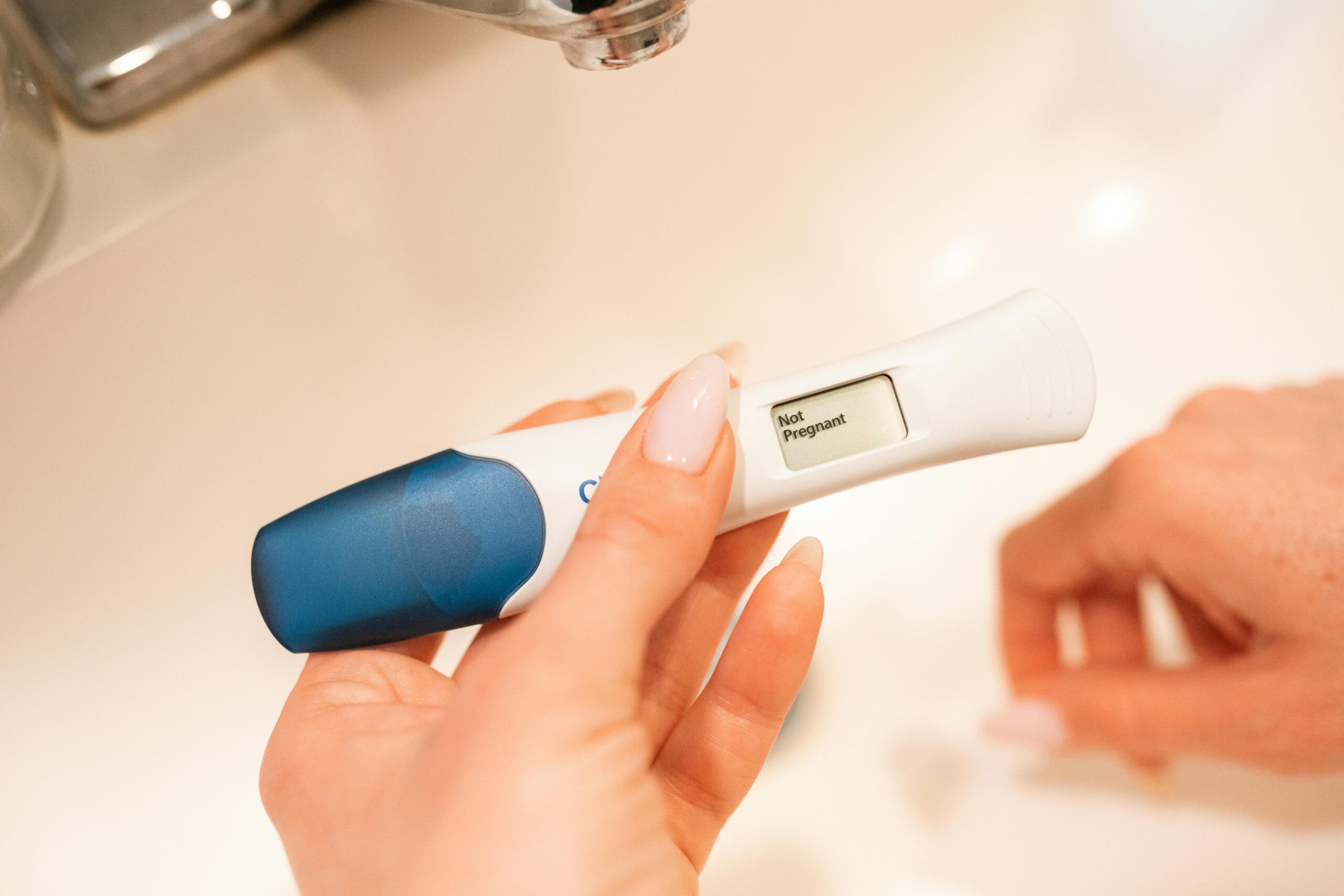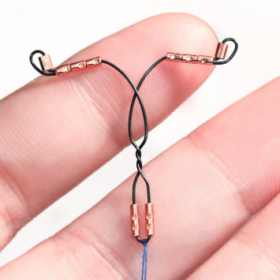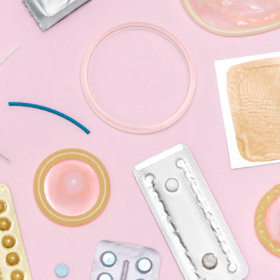
How the current healthcare system is failing women when it comes to their contraception
Written by Alice Pelton on May 26, 2021
Welcome – I’m Alice 👋
I set up The Lowdown to help women sort out their contraception in 2019. We’ve collected over 5,000 real-person reviews on every method and brand in the UK – and thousands of women come to us every day.
Our mission is to make contraception easier to choose, access and use for the 1 billion people who need it worldwide. We have big plans to use our unique dataset and growing community to transform this massively underserved area of women’s health. 🚀
Over the last 5 years I’ve spoken to thousands of women about their contraception, and want to share some of what I’ve learnt in the hope to educate more people about what a mess it is, and why we desperately need change.

The pharmaceutical industry only funnels 2% of it’s annual revenue from contraceptives back into research and development 💰
Let’s start off with the underlying problem: The contraceptive methods we have available to us simply aren’t good enough.
The Pharma industry does not want to invest more time and money into developing new ways to stop people from getting pregnant. The reasons behind this are complicated – but from what I’ve learnt, it’s a combination of things that are all to do with money:
- Contraceptives are expensive and difficult to develop, trial and get regulated: It’s a risky business giving a healthy person a drug
- Pharmas will never be able to sell contraceptives for the same price as life saving cancer drugs
- They’re also scared about getting sued (lots of legal disputes involving contraceptives in the 80’s and 90’s)
- Pharma have (unfounded) fears that any new male methods will erode the established female contraceptive market.
- There’s a general perception that we have ‘enough’ options.
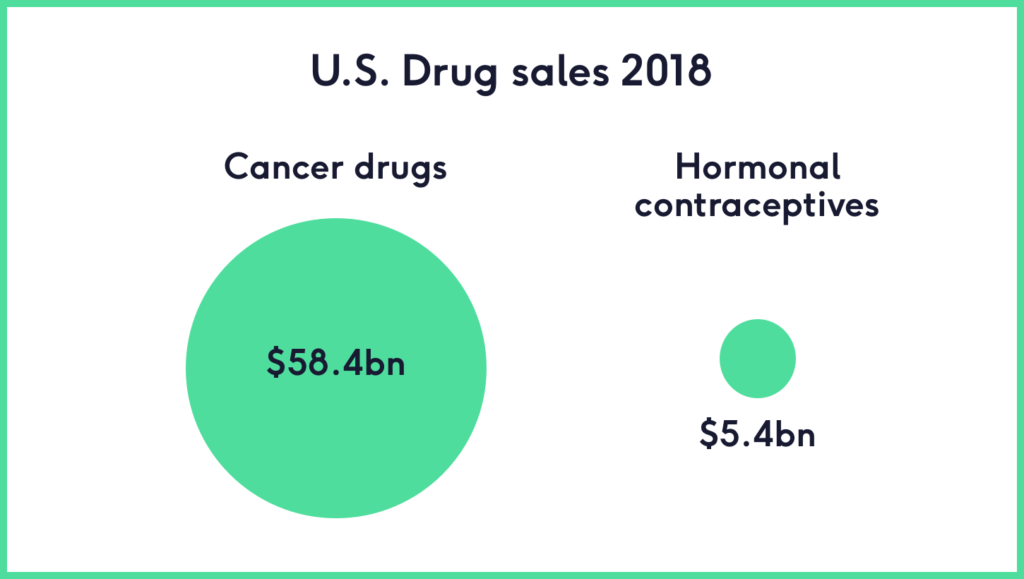
Around 80% of us get unwanted side effects 🤷♀️
Sadly the impact of this lack of investment into contraception falls mainly on women.
In case you have been living on the moon since the 60’s: Contraception causes millions of people with vaginas unwanted side effects. These range from the irritating (breakthrough bleeding, headaches) to wellbeing impacting (mood changes, reduced sex drive) to life threatening (blood clots, increased risk of breast cancer).
A wide range of clinical evidence points to the fact that 20-30% of us are dissatisfied with our contraception, and concerns about side effects are the number one reason why Western women stop using their method. Our research shows over half of women have had trouble trying to find a method that suits them. It’s a journey!
There are obviously fantastic benefits to contraception. But the pervasive narrative seems to be that we simply have to brush aside the bad bits and pay this price to not get pregnant. We’re riding a generational wave of women demanding more for their health, and I hope as part of that we can all have a more nuanced conversation about contraception. It can be both good and bad, and acknowledging this does not always result in women throwing out their contraception, causing unintended pregnancies.

Getting good medical advice is difficult and takes time ⏰
I have no idea how a GP or practice nurse can fit a proper contraception consultation into a 10 minute appointment. There are so many questions and options to run through, that it’s no surprise that 33% of Lowdown users don’t feel they have time during their appointment to discuss everything they want to with their Doctor.
When we launched a virtual Ask a Doctor service we extended our appointment slots from 15 to 20 minutes, and they still can overrun, even without our Doctors writing prescriptions or dealing with multiple health concerns.
You’d never choose your mortgage in 10 minutes. And given that most women use contraception for longer than 30 years, we all need to work together to devise innovative but reliable ways to impart this complicated information to them – before, during or after appointments. The technology is out there, but given the personal and emotional nature of these decisions, many women will still want and need to have a conversation with a real human being. And it’s down to us to innovate on how this is delivered.
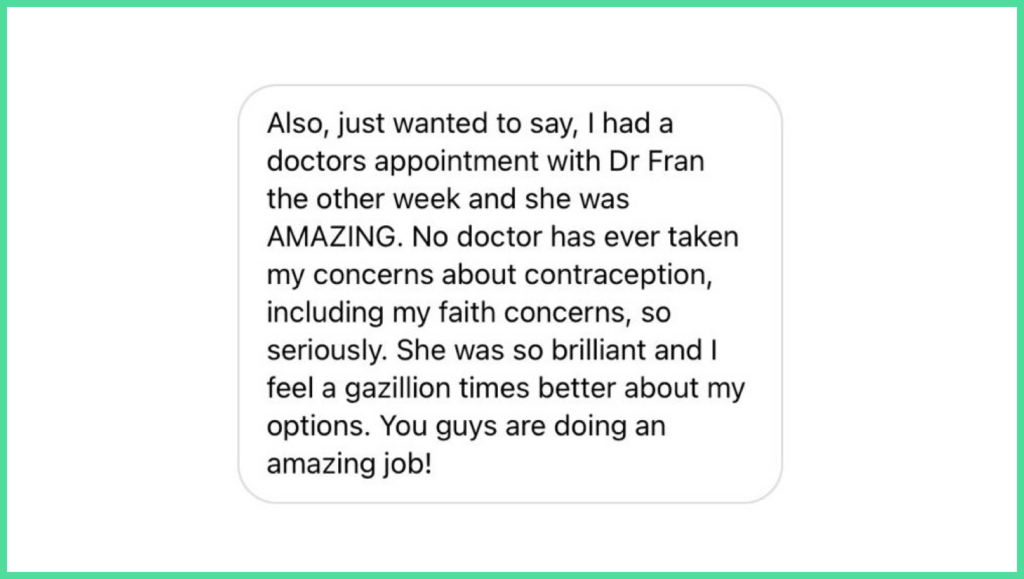
Women don’t feel listened to 👂
This is a big one. And I think it happens for a few reasons.
On one hand we have an incredibly busy healthcare professional who is trying to make sure they give a woman the best possible care, in a very short space of time. They need to ensure access to suitable, safe and reliable contraception but don’t have access to huge amount of reliable (or accepted) gold standard research linking contraception to non-threatening side effects like mood, sex drive, skin and other changes – and more importantly, what to do about managing these side effects.
On the other hand we have a woman who doesn’t want to get pregnant – but at a certain point, for some women, the side effects and repeated ‘trial and error’ or switching between methods and brands make them so miserable, they start to need help. Some of these side effects may not all be clinically proven, but for many women she feels like her contraception is impacting her in this way. And we need to respect that.
I recognise that Doctors are disempowered, and faced with trying to make the best of a bad situation. And I think that often results in women not feeling listened to or in control. At The Lowdown we’ve realised that helping women feel listened to and understood, can sometimes be the treatment they’re looking for.
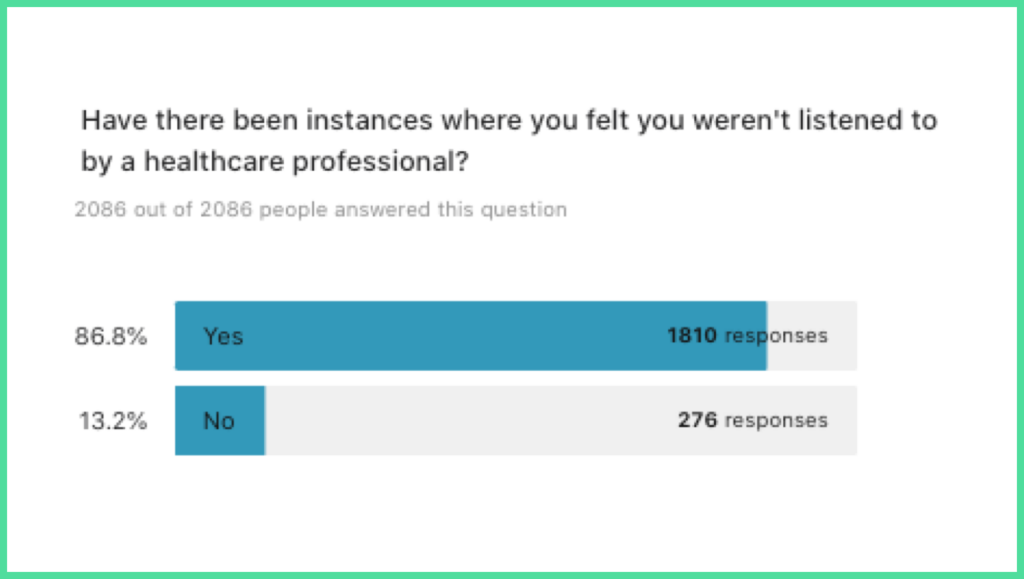
Women are starting to turn their back on hormones 🧬
You may have seen the stats showing the fall in use of oral contraceptives, and increase in LARC uptake over the last 10 years. The Hormonal IUS is the highest rated method of contraception at The Lowdown, with 60% of reviewers rating it ‘Very good’ or ‘Excellent’.
But there is also a much more impactful trend of women wanting to ‘free’ themselves from hormonal contraception, and not ‘liking the thought of hormones inside them’. This has picked up pace in the last 18 months, especially due to the multiple think pieces in the press last year to mark the 60th anniversary of the contraceptive pill.
When it comes to contraceptive technology, I think we should all be aware that we’re heading well into the Trough of Disillusionment:
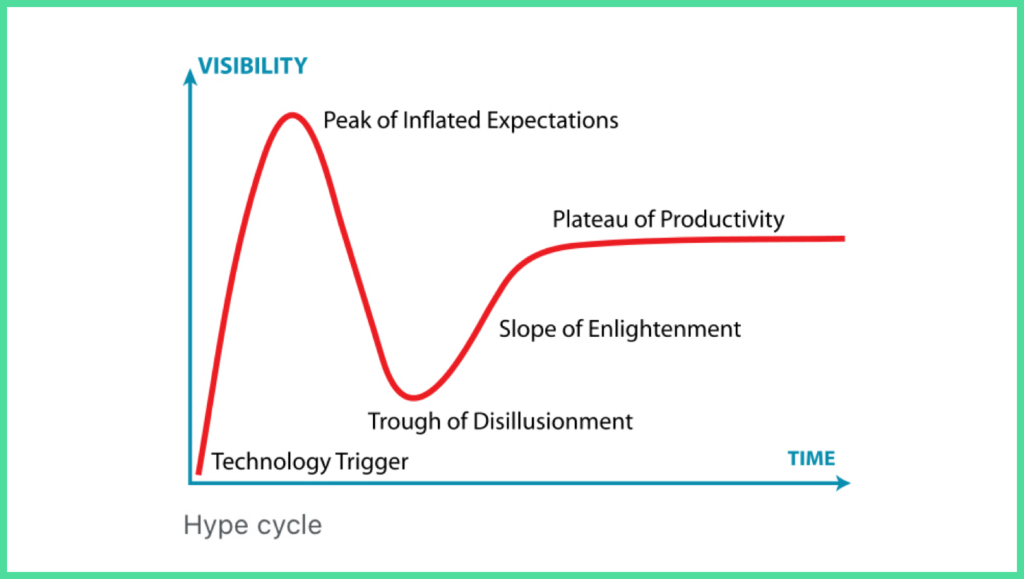
This means that investment will only continue if the surviving providers improve their products. And as per my first point, they’re not doing that.
When we tell our users about the next generation of contraceptive products appearing, like the (now delayed) Ballerine IUB, we receive an overwhelming response.

Women want to talk, so it’s our job to connect them 💬
This is the crux of The Lowdown’s success, and something that I know lots of healthcare professionals get frustrated about; women arriving in clinics filled with misinformation or hearsay from their girlfriends.
70% of women turn to Google when they have a problem or question about their contraception, and there are over half a million searches on this topic in the UK alone every month. I agree with the RCOG Better for women report that ‘the NHS website should become the world’s best source of information for girls, women and clinicians’, but we also need to look at where these women hang out and increasingly get their health advice – platforms like Facebook, Instagram, TikTok.
This is why I set up The Lowdown – because I recognised that we need to challenge the way we think about women managing their health, and create a safe non-medical space where women feel supported and listened to.
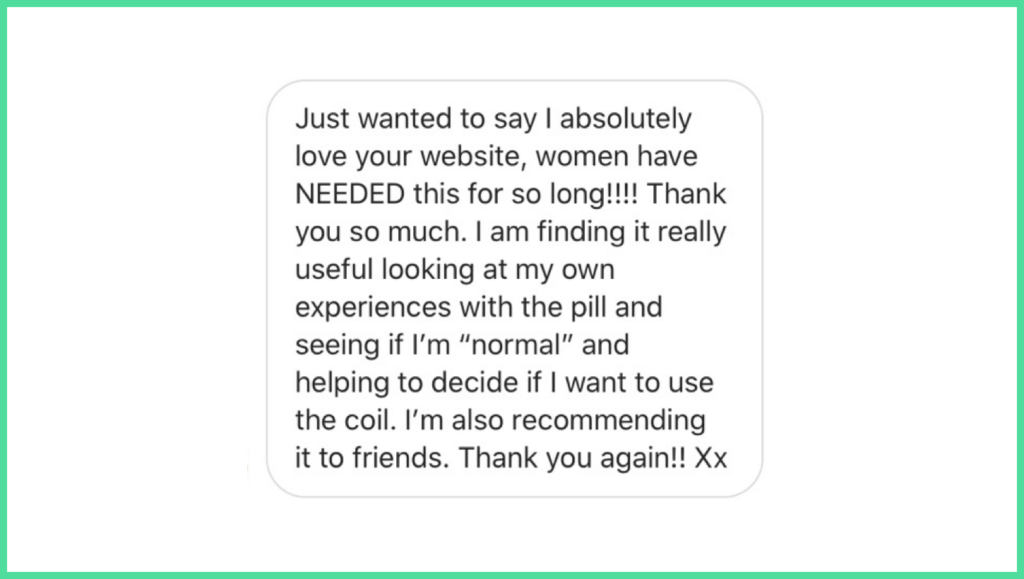
If you’d like to find out more about us and our findings or plans, or have any feedback for me on how we can do better – please don’t hesitate to get in touch alice@thelowdown.com
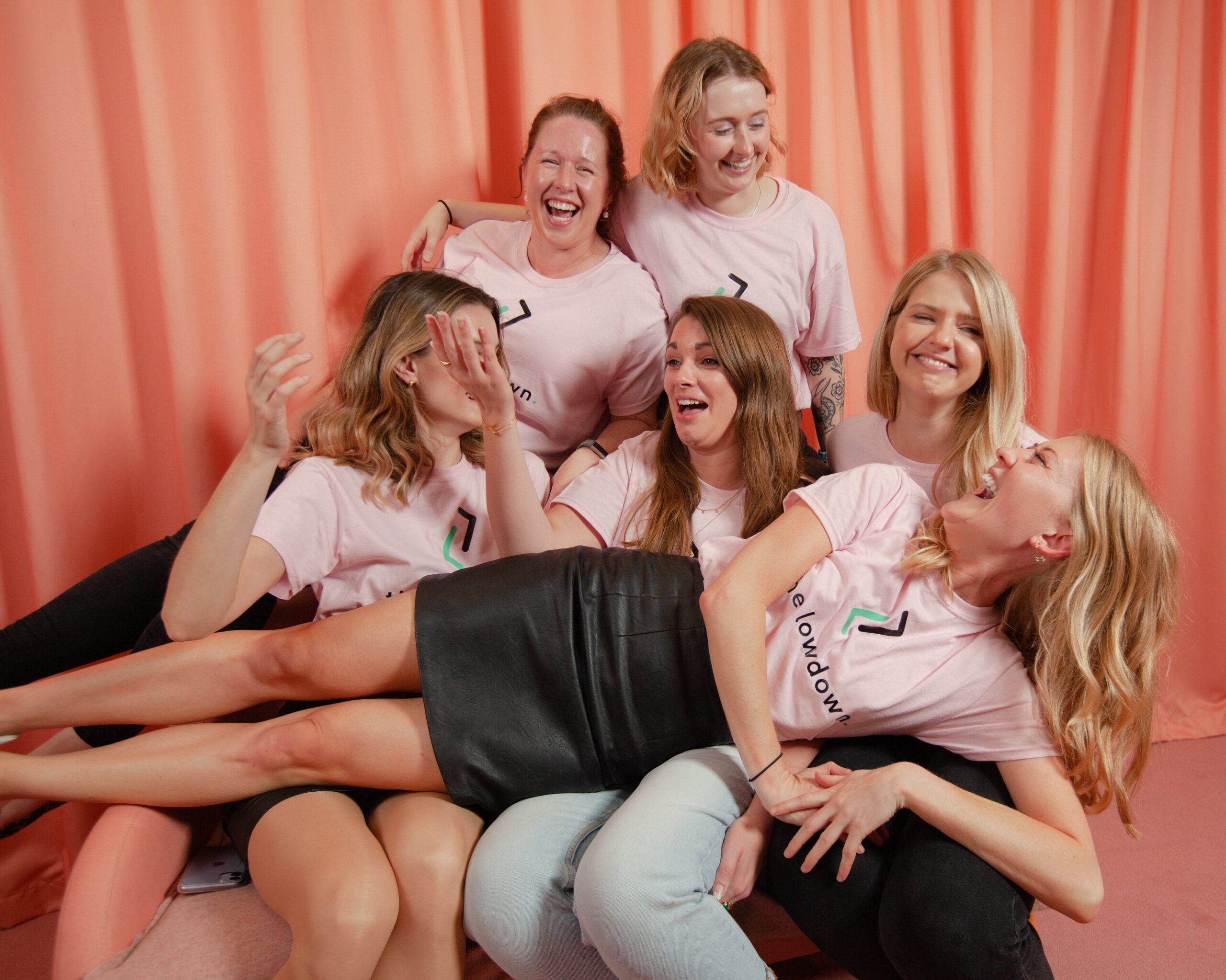
As you’re here – checkout our reviews, read about the different types of contraception – or follow us @Get.the.lowdown



